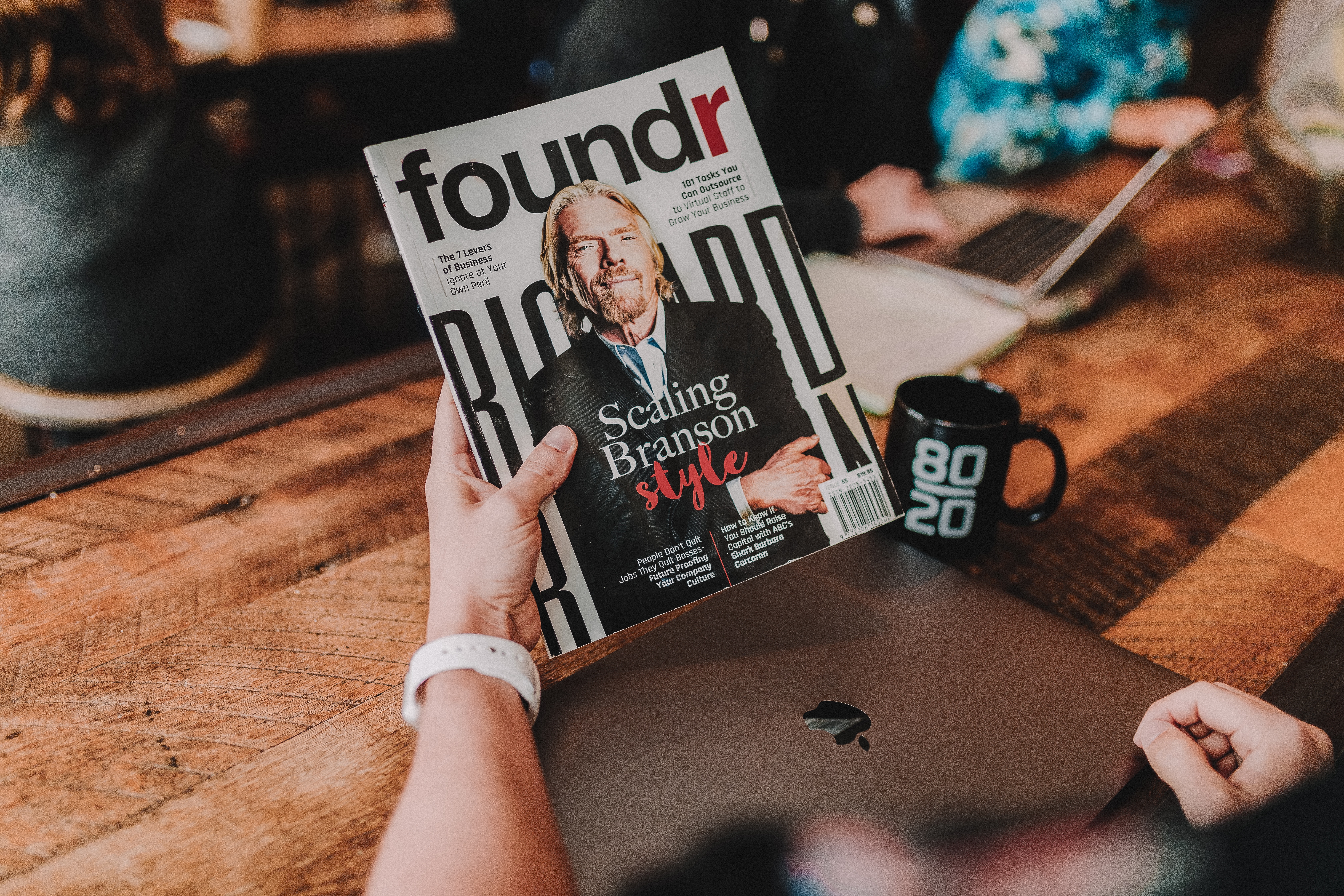
Being an entrepreneur is personal. There is nowhere to hide, especially from your own personality. Who you are as a person is going to directly impact your success, right from the start. Your good, bad and the not-so-pretty traits will be along for the ride as you build your business. And you need a plan to deal with yourself.
When you work in an organisation, you are not quite so exposed. Whether we admit it or not, we mould to the culture of a company (or we ship out) and this can influence how we show up. And when we cause ourselves problems, there is often someone who will give feedback or help us get us unstuck. For example, perhaps you find it hard to deal with conflict, and someone else will generally step in to help resolve it. When you lead your own business, that luxury is not there. It’s always down to you.
I believe that any personality can be successful as an entrepreneur, but it’s the people who are willing, open and obsessive about their growth that deliver. They understand their strengths, how their strengths can be over played, and their blind spots… and they do something about it. They build strategies to ensure their personality does not trip them up.
At Cambridge University this week, I worked with 42 entrepreneurs, using the Enneagram system to shine a light on themselves. The Enneagram identifies 9 Types of personality, explaining why we think, feel and act the way we do. Whilst the Enneagram describes the personality (in great depth), its real power is in it is how it helps you to grow. It’s a personality growth system, providing insight to create strategies that are specific and effective for each Type. When entrepreneurs grow themselves, they are increasing the odds of their businesses growing too.
Below are some examples relating to each Type, and the challenges they may face when they build a business. When you are aware of this, you can do something about it.
Type 1: A One’s thirst for perfection can result in them delaying the launch, or even stop them from taking the plunge to start their business: “I need everything in place and then I will leave my job and start it.”Ones can find it hard to delegate, and when it’s their own business they can find it even harder, as the stakes are higher. This can lead to burn-out, or at least limiting the speed at which the business can scale.
Type 2: Twos focus on people, whether it is providing exceptional customer service or building the team, however, they need to ensure they spend enough time and energy on other important aspects of their business, such as efficiency, process and the numbers. Naturally optimistic, they sometimes need to balance this with some conscious objectivity – perhaps identifying what or who is not working and then making some tough decisions.
Type 3: Threes are the “just do it” Types in the Enneagram, but this drive can be at the expense of everything else in their life and they risk burning out. A burnt out Three will burn out their business in the long run. A strategy for taking care of their wellbeing will ensure their longer term success. Threes can be status focused and view things through the lens of “Will this make me look good?” versus “What is the right thing to do here?” Doing the right thing may force some hard but important choices, building trust with stakeholders and investors.
Type 4: Fours may become overly sensitive to customer’s responses, or any kind of feedback, and as a result may withdraw rather than listening to see if things need to be adapted. As they build the business, and look at other entrepreneurs around them, they can find themselves comparing themselves to others, which can be challenging and distracting from what they really need to do.
Type 5: The Five’s objective thinking is fantastic at creating new ideas… the challenge can be when they need to sell their thinking to others. They need to work out how to engage hearts as well as minds, perhaps through story telling or painting a compelling vision of the future. And when they present, they should consider how they can build their gravitas and connection with the audience.
Type 6: Sixes can be brilliant at analysis, and this love of analysis can make it hard for them to move forward without all the information. Their worry can become infectious and also make others doubt them; particularly challenging when they are trying to sell to investors or encouraging people to take the leap to join them. Sixes need to fully trust in themselves and step into their courage.
Type 7: Seven’s dislike of routine and process can potentially cause issues for other stakeholders, and hinder their ability to scale and hold themselves to account. This behaviour can set off alarm bells with others. Their thirst for stimulation and variety can be a hurdle to starting on their own, and may make it hard for them to follow through and finish.
Type 8: Eights often have a need for control, and there is so much of the entrepreneurial journey that is not always within their control. This can put a lot of pressure on them and could also have wider implications in terms of bringing people onboard, whether that’s other partners or investors. They can be resistant to asking for help and may hide their concerns behind a tough exterior – and miss opportunities as a result.
Type 9: Nines can find it hard to set goals and stick to deadlines. There is a need for accountability to deliver to themselves (they are very good at delivering for others, but that’s not there when you are an entrepreneur). Nines can find it hard to step forward and make themselves visible, which can impact how successful they are at raising awareness of their business, whether that’s attracting customers or potential investors.
When you know your blind spot you can do something about it, by developing strategies to minimize the impact of it… in orders to maximise your chances of success. Our personalities are not static and when we focus on our own growth, it will encourage business growth to follow. Grow yourself to grow your business.
And yes, any personality has the potential to do that.
Thank you to @AustinDistel for the photo on Unsplash.com

